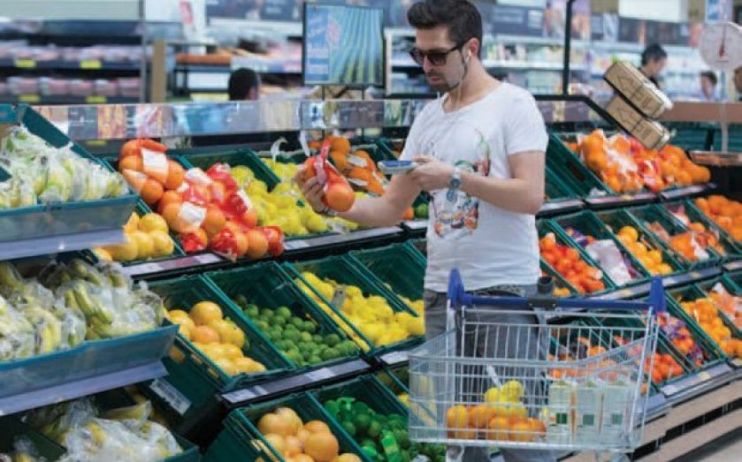Carbon labelling on groceries could be on the way for shoppers after new research

Shoppers might soon have to reckon with the environmental impact of food as well as the health implications, after researchers work out the carbon footprint of certain products.
Researchers from Oxford University have used public databases to work out the composition of thousands of foods and their impact on the planet.
Scores are calculated on the basis of the impact of cultivation, processing and transportation of products.
Beef and lamb ranked the highest, followed by deli meat and cheese and then nuts and dried fruit.
“Manufacturers, caterers and retailers have targets for reaching net zero [emissions] and they don’t have the tools they need to get there,” Prof Peter Scarborough from Oxford University told BBC News.
“Now they have this data, and some of them are talking to us about things they can do to help people move towards more sustainable food purchasing. The data could help manufacturers adjust their formulations,” he explained.
The study revealed a “desperate need for mandatory carbon labelling” across the UK food and drink sector, according to Huib van Bockel, CEO of energy drink brand Tenzing .
“Shoppers currently have no way to judge the environmental impact of the food products they buy,” he added.
“A carbon label helps consumers to understand the eco impact of each item in their basket – and in many cases it would make people think twice about what they purchase.”
“[Mandatory carbon labelling] would force companies to disclose the environmental impact of their food production methods, and arm consumers with the knowledge they need to make informed choices when doing their weekly shop,” he said.